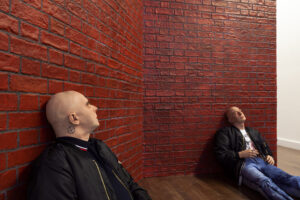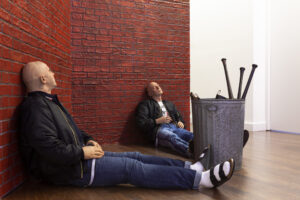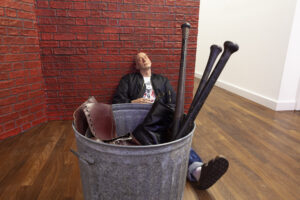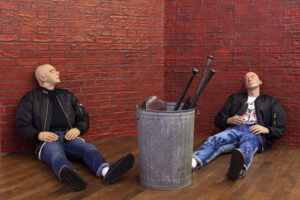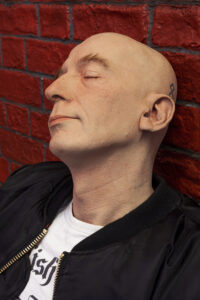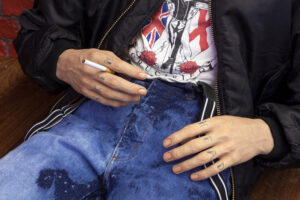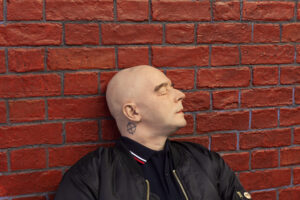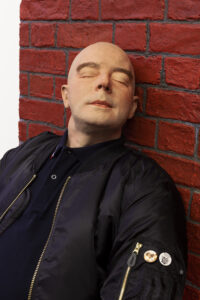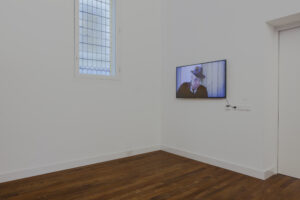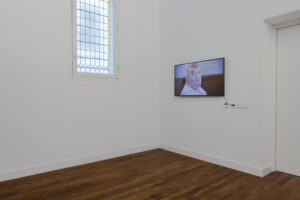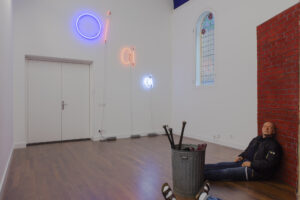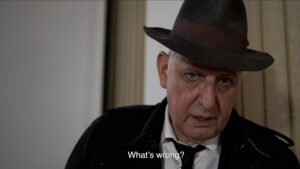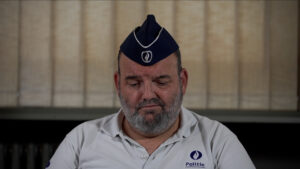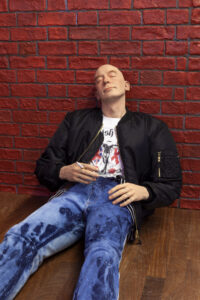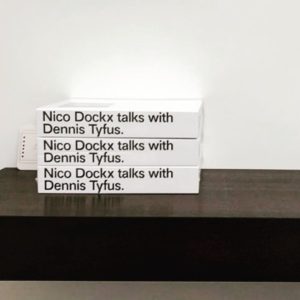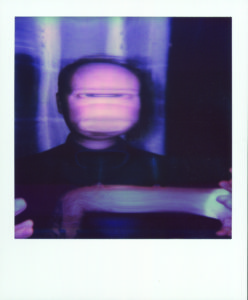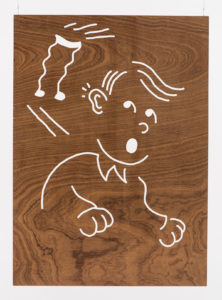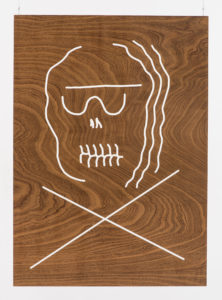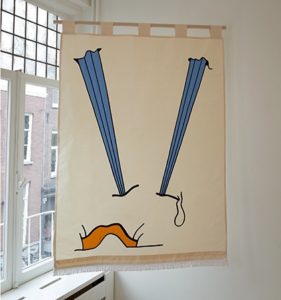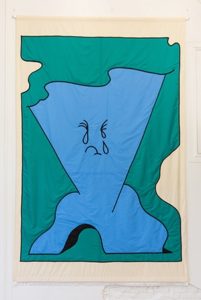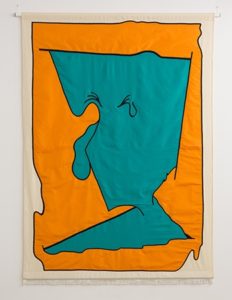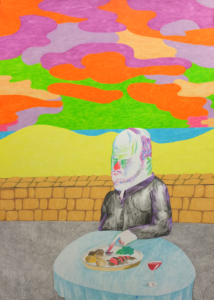Dennis Tyfus is een multi media kunstenaar en musicus met een zijn eigen radioprogramma op Radio Centraal in België en met zijn eigen boeken- en platen label ‘Ultra Eczema’. Hij is een van de oprichters van het Pinkie Bowtie in Antwerpen. Van Dennis Tyfus is een monografie uitgegeven “I know this sounds quite ridiculous but I just follow the line”. Waarin Nico Dockx in gesprek is gegaan met Dennis Tyfus.
Over het boek: “I know this sounds quite ridiculous, but I just follow the line.
366 days, 366 questions, resulting in 366 answers”.
One year, one continuous flow of questions and answers, merging into an extensive conversation. Welcome to Dennis Tyfus’s story, constructed by a world of images, performances and sounds.
To celebrate the opening of Tyfus’s solo show at Middelheim Museum Antwerp, “My Niece’s pierced Knees”, Curious/Stockmans will publish a 880 pages overview of 20 years of art practice by the artist. In this tsunami of images the reader will discover the artist’s drive, his roots near Antwerp, his continuous inspiration in music, and will also join him on several road trips. Do wonder and be surprised by his generous creativity, often in collaboration with kindred souls. His biotope becomes his stage, one superfluous spectacle.
text: Nico Dockx. In much, if not all, printed matter that the artist Dennis Tyfus produces on his own label Ultra Eczema he invites, engages, and collaborates with other artists, writers, musicians. His work is about many different things and one can perhaps even say that Ultra Eczema is a sort of production platform rather than just a regular record label. It is also a communication tool that enriches and enlarges his personal network of friends and collaborations. His artists’ books speak for themselves as they are simply things he really wants to publish, sometimes in conjunction with events, performances, or exhibitions —and sometimes just out of the necessity to share this work with friends.
The great diversity of vinyl records that he releases are at best the product of collaborations in which the audio is created by musicians, artists, or performers he invites for a project. As part of his practice, Dennis Tyfus always designs and makes the artwork for these record sleeves. In most cases he tries to mix and collage both audio and visual materials. The personal relationship he has with other artists is the most important aspect in realizing all these collaborations. A lot of the music that Ultra Eczema releases is from Antwerp, as it totally makes sense—as a protest against forgetting—to document and record what is happening or what has happened in this small harbor city.
